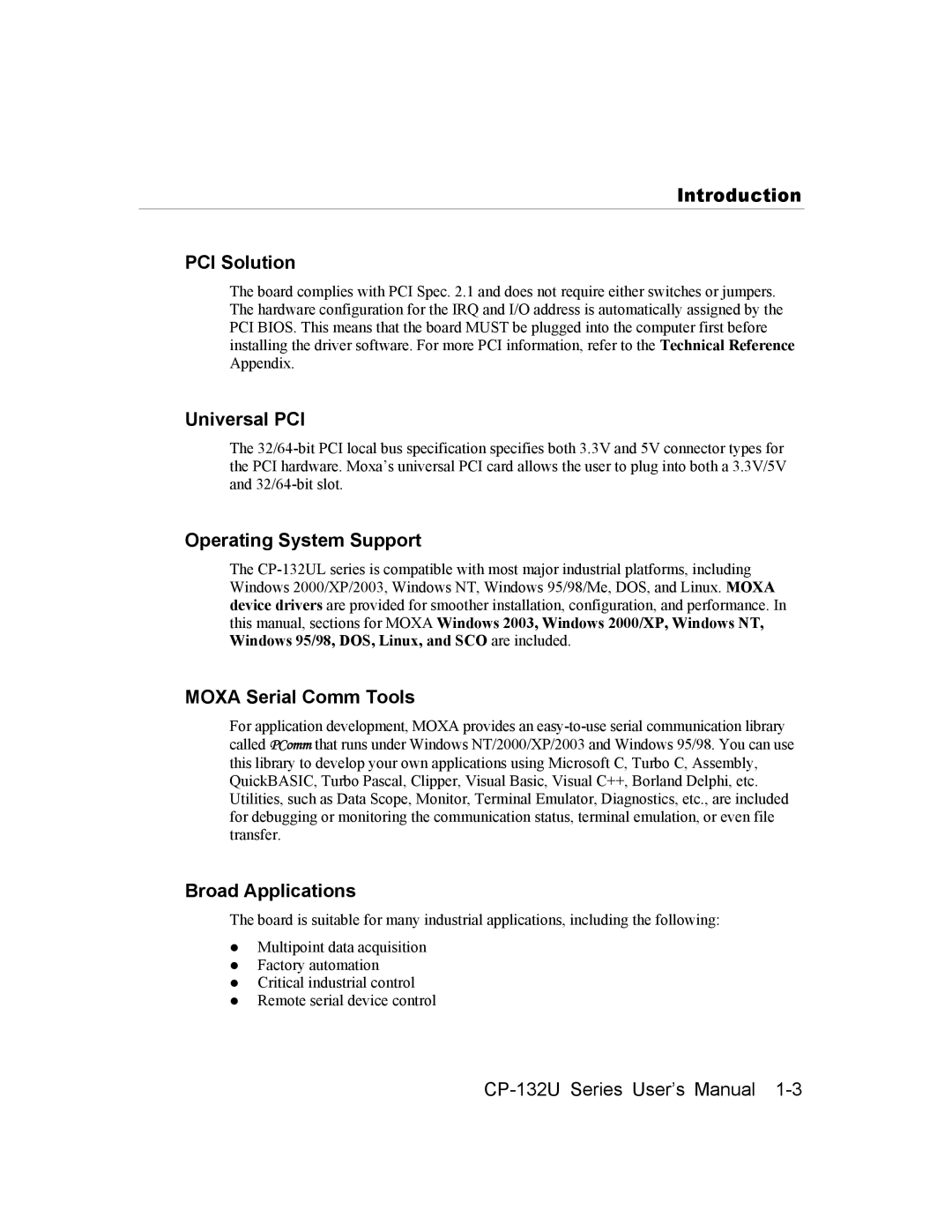Introduction
PCI Solution
The board complies with PCI Spec. 2.1 and does not require either switches or jumpers. The hardware configuration for the IRQ and I/O address is automatically assigned by the PCI BIOS. This means that the board MUST be plugged into the computer first before installing the driver software. For more PCI information, refer to the Technical Reference Appendix.
Universal PCI
The 32/64-bit PCI local bus specification specifies both 3.3V and 5V connector types for the PCI hardware. Moxa’s universal PCI card allows the user to plug into both a 3.3V/5V and 32/64-bit slot.
Operating System Support
The CP-132UL series is compatible with most major industrial platforms, including Windows 2000/XP/2003, Windows NT, Windows 95/98/Me, DOS, and Linux. MOXA device drivers are provided for smoother installation, configuration, and performance. In this manual, sections for MOXA Windows 2003, Windows 2000/XP, Windows NT, Windows 95/98, DOS, Linux, and SCO are included.
MOXA Serial Comm Tools
For application development, MOXA provides an easy-to-use serial communication library called PComm that runs under Windows NT/2000/XP/2003 and Windows 95/98. You can use this library to develop your own applications using Microsoft C, Turbo C, Assembly, QuickBASIC, Turbo Pascal, Clipper, Visual Basic, Visual C++, Borland Delphi, etc. Utilities, such as Data Scope, Monitor, Terminal Emulator, Diagnostics, etc., are included for debugging or monitoring the communication status, terminal emulation, or even file transfer.
Broad Applications
The board is suitable for many industrial applications, including the following:
zMultipoint data acquisition
zFactory automation
zCritical industrial control
zRemote serial device control
